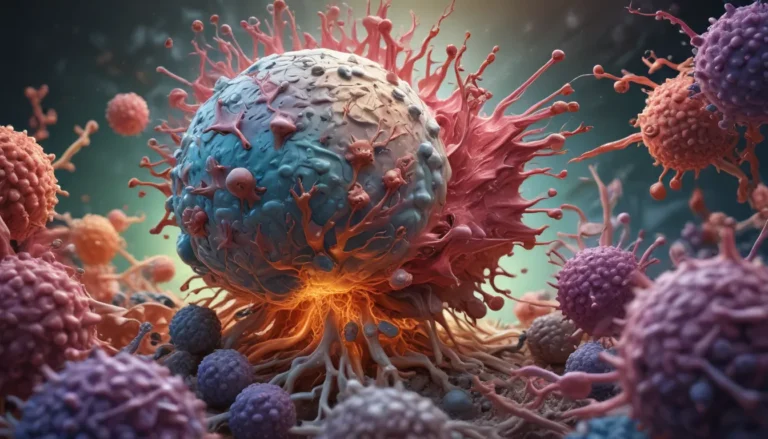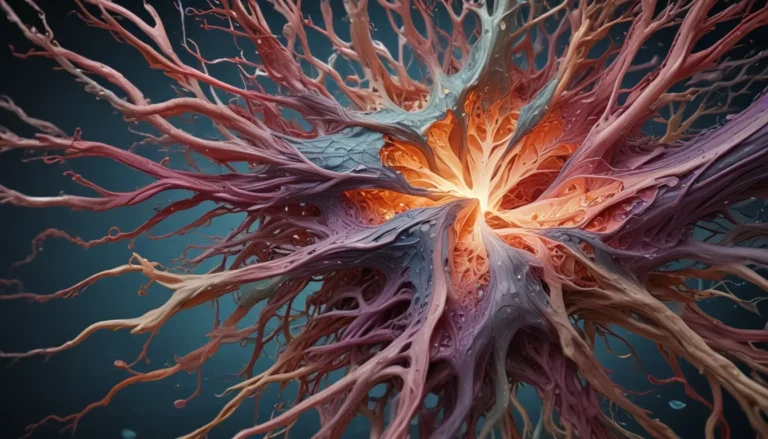A Note About Images: The images used in our articles are for illustration purposes only and may not exactly match the content. They are meant to engage readers, but the text should be relied upon for accurate information.
Carbohydrate metabolism is a vital process in our bodies that fuels various biological functions and provides the energy needed for everyday activities. This intricate process involves the breakdown, synthesis, and utilization of carbohydrates to support optimal health and well-being. In this article, we will delve into the world of carbohydrate metabolism and explore 16 fascinating facts that shed light on this essential aspect of biology. From the basics of carbohydrates to the impact of this process on our overall health, this article will provide you with a comprehensive understanding of the wonders of carbohydrate metabolism. So, buckle up as we take a deep dive into this captivating world and uncover insights that will leave you amazed!
The Role of Carbohydrates in Providing Energy
- Carbohydrates, also known as saccharides, are the main source of energy for our cells. They are broken down into glucose, which fuels various metabolic processes in the body.
- Glucose is the preferred fuel for the brain, emphasizing the importance of maintaining stable blood sugar levels for optimal brain function.
The Beginning of Carbohydrate Metabolism: From the Mouth to the Cells
- Carbohydrate metabolism starts in the mouth when the enzyme amylase in saliva breaks down complex carbohydrates into simpler sugars like maltose.
- Insulin, produced by the pancreas, plays a crucial role in regulating blood sugar levels by allowing glucose to enter cells for energy or storage as glycogen.
Storage and Production of Glucose
- Excess glucose is converted into glycogen and stored in the liver and muscles for later use.
- In times of low carbohydrate intake, the body can produce glucose from non-carbohydrate sources like amino acids and glycerol through gluconeogenesis.
Impact of Diet and Lifestyle on Carbohydrate Metabolism
- High-carbohydrate diets, especially those high in refined sugars, can contribute to weight gain as unused glucose is converted into fat.
- Low-carbohydrate diets can induce ketosis, where the body uses fats as its primary fuel source.
Hormones and Exercise in Carbohydrate Metabolism
- Hormones like glucagon and cortisol regulate carbohydrate metabolism by stimulating the breakdown of glycogen and promoting gluconeogenesis.
- Physical activity enhances carbohydrate metabolism by increasing glucose uptake by muscle cells and improving insulin sensitivity.
Carbohydrate Metabolism in Athletic Performance and Health
- Athletes rely on efficient carbohydrate metabolism to fuel their muscles during intense workouts and maintain energy levels for endurance.
- Medical conditions like diabetes can disrupt carbohydrate metabolism, leading to uncontrolled blood sugar levels and severe health consequences.
Individual Variations and Fiber in Carbohydrate Metabolism
- Factors like genetics, lifestyle, and overall health can influence an individual’s ability to metabolize carbohydrates efficiently.
- Fiber, a unique form of carbohydrate, plays a crucial role in maintaining a healthy digestive system and can impact carbohydrate metabolism.
Importance of Understanding Carbohydrate Metabolism for Balanced Nutrition
- A thorough understanding of carbohydrate metabolism can help individuals make informed dietary choices and maintain overall health and well-being.
- Balancing carbohydrate intake with other nutrients is essential for promoting optimal health and fueling the body properly.
In conclusion, carbohydrate metabolism is a fascinating aspect of biology that is crucial for providing our bodies with the energy they need to function effectively. By understanding the basics of this process, we can make informed decisions about our dietary choices and ensure that we are properly fueling our bodies. Whether you are a science enthusiast or simply curious about the wonders of the human body, exploring carbohydrate metabolism is a rewarding journey that reveals the intricate mechanisms of life itself.
FAQs about Carbohydrate Metabolism
-
What is carbohydrate metabolism?
Carbohydrate metabolism is the process by which the body converts carbohydrates into energy for cell use. -
What types of carbohydrates are involved in metabolism?
Sugars like glucose and complex carbohydrates such as starches and fibers are main types of carbohydrates involved in metabolism. -
How is glucose metabolized in the body?
Glucose is metabolized through various biochemical reactions, ultimately converting it into ATP, the cell’s energy currency. -
What role do enzymes play in carbohydrate metabolism?
Enzymes act as catalysts to speed up the breakdown of complex carbohydrates into simple sugars and aid in their conversion into usable energy. -
Can carbohydrate metabolism impact weight and health?
Imbalances in carbohydrate metabolism can contribute to weight gain and increase the risk of health conditions like diabetes and metabolic syndrome.
Exploring the world of cellular energy production and understanding the intricate processes of glycolysis and the citric acid cycle can expand your knowledge of how our bodies create and use energy. Dive deeper into this biochemical wonderland and uncover more captivating facts to enhance your understanding of carbohydrate metabolism!
With a wealth of diverse insights and information contributed by real users, our commitment to delivering trustworthy and engaging content ensures that each fact is not only fascinating but also credible. Trust in our dedication to quality and authenticity as you explore and learn with us.






